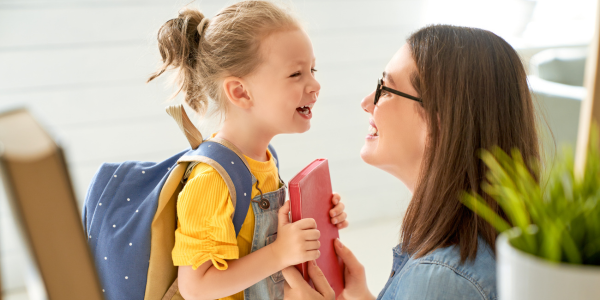A Better Way to Support Social Development: Become Your Child’s Social Coach

A Better Way to Support Social Development: Become Your Child’s Social Coach
By: Melanie Reader, R. Psych, Manager - Psychological Services & Programs
As another school year nears its close, many parents and children are looking ahead to the summer months with anticipation. It’s a time to put school expectations aside and enjoy spending time with friends – at camps, at sleepovers, at the playground, at the lake. However, many children with LDs and/or ADHD lack the same anticipation, and perhaps instead even feel dread. While most children can engage and navigate through these experiences, it can be effortful and confusing for these children. But parents can help children find friendship success!
LD/ADHD and Social Challenges
Research has shown for many years that children with LDs and/or ADHD are challenged in our social world. Weaknesses in executive functioning play a large role in the social realm. Executive functions help a child to first attend to the social interaction, then monitor his own behavior and modify it as needed based on the interaction. When there are weaknesses,
- Children can struggle to read social cues.
- They may not pick up on the nuances in social situations as readily as others (e.g., sarcasm, tone of voice).
- They may be challenged in sustaining their attention throughout a conversation and thus respond inappropriately.
- They may respond impulsively, may be more intrusive or interrupt, and have more demands (i.e., bossy).
- Difficulties with self-regulation may mean having high emotional reactivity.
- As many children struggle with responding to the emotions of others, they may be viewed as rude or disinterested.
- They may struggle to use humor appropriately.
These behaviors may annoy peers and lead to negative reactions from them, including being disliked. As such, making and keeping friends can be difficult. Peer rejection and isolation can be common, which further limits social opportunities and development of social skills.
Meeting Children at the “Point of Performance”
As Dr. Ross Greene puts it, “kids do well when they can.” Kids with LD/ADHD are not trying to be rude or to disregard the expectations of others. They simply lag in the skills required to navigate social situations. This is why many social skills programs were developed. Such programs provided psychoeducation to children, attempting to provide them with the skills and information they needed. But most of these programs were not found to be highly effective or consistent in their effectiveness. Such interventions occur in a clinical setting, which limits the opportunities to practice skills in natural environments and receive immediate feedback. There is a lack of transfer to real-world situations. Given attention and working memory challenges, it can be very difficult for children to learn a skill in a clinic setting and then recall and apply what was learned in a similar real-life situation in real-time.
In addition, many programs primarily focused on increasing knowledge. In the majority of cases, we know that failed interactions are not due to a child’s deficit in understanding what they should do (a knowledge deficit). The children know the skills and what they should do. Rather, it is due to being challenged in using that knowledge in a new, unfamiliar way (a performance deficit). They do not apply the expected skills independently and consistently. We now know that children are best helped by supporting them at the ‘point of performance.’ As Dr. Russell Barkley describes, “The point of performance is that place and time in the natural setting of the person’s life where they are failing to use what they know – they are failing to engage effectively in EF (self-regulation).” Knowing this shifts how we support kids in their social development. Evidence now shows that parents (and teachers, coaches, other adults) should use live strategies to help scaffold peer interactions in-the-moment.
So, how can parents help? By becoming their child’s social (or friendship) coach. Parents are in their child’s life and see them in real-life situations. Thus, they can teach and remind their children what skills to use in situations, and reinforce the use of the skills until the children are able to do so naturally and automatically. Here are some ways parents can become their child’s coach:
- Nurture natural opportunities to practice friendship skills in a safe environment. This can even start at home with parents and siblings during a games’ night. Board games allow practicing of numerous skills such as taking turns, accepting defeat, following the rules, etc.
- Act as a friend match-maker. Find other children who have similar interests to your child’s. For example, network with parents in your neighbourhood, the other parents on your child’s (or child’s sibling’s) sports team, or perhaps through your religious gatherings. Teachers may be able to help identify which classmates your child might connect with too.
- Then, create supported opportunities for them to meet. Plan ahead what will happen during the playdate and then focus on the friendship skills required. For example, if the chosen activity is to play a boardgame, then discuss such skills as those noted above: taking turns, accepting defeat, following the rules. Then, role-play with your child (e.g., play the game). Generate situations that tend to be a problem for the child, and discuss and practice how to handle them.
- For younger children especially, provide external supports during a play date. Ahead of time, set up code words that can act as an immediate cue (e.g., to remind your child to remember to take turns).
- Provide feedback. The more immediate and specific, the better. So, if possible, provide feedback during the playdate as noted above with cuing. If this is not possible, do a debrief immediately following the playdate. Provide positive feedback, with this playing the largest role. But, also discuss what could have been done differently. Be selective and pick one skill at a time to work on.
- Praise efforts and successes. A behavior that is reinforced will be repeated. So, if your child displays a positive social behavior (e.g., cognitive flexibility in allowing another child to choose the game to play), be sure to highlight it. Children with LD/ADHD often struggle with memory, so they forget when they enjoyed something or found success. So, show them photos of times when they had fun (e.g., summer camp, gymnastics club, etc.). Ask questions that guide them to being reminded of the fun they had so that they are more eager to engage again.
Beyond the Playdate
In addition to these strategies, involving children with LD/ADHD in extracurricular activities to promote further social interaction is recommended. It can be especially helpful if the adults in charge of such activities also have some knowledge of and experience in working with children with LD/ADHD. Then, they can take on the role of a social/friendship coach during their time with your child. During the summer months, day and overnight camps can allow children to receive support during both structured and unstructured activities to facilitate peer interactions. Research shows that social skills support offered in such a naturalistic setting also improves social competence (i.e., the ability to understand another in a social interaction and to apply previous knowledge and experience to new social situations).
Parents play an important role in the development of their children’s social competence. By taking on the role of a child’s social coach, friendship success can be found. And summer is a great time to involve other potential coaches in supporting your child. School may be out, but the learning continues - here’s to a fantastic summer for everyone!
Further Resources for Parents

